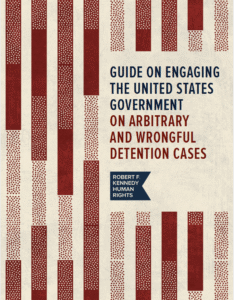IN COMMEMORATION OF INTERNATIONAL YOUTH DAY, GOVERNMENTS AROUND THE WORLD SHOULD PROTECT AND PROMOTE ONLINE CIVIC ENGAGEMENT ENABLED BY UNHINDERED ACCESS TO THE INTERNET.
In a world where youth-led activism and organizing draws attention to and provides platforms for developing solutions to global challenges, governments must promote and protect one key enabler of civic engagement for youths: the internet. Studies have found that young people rely more on the internet for news, political enlightenment, development of their civic identity and expressing their political stance than other age groups. In addition, data suggests that young people who “engage in digital participatory politics are much more likely to engage in … offline political participation such as voting.” Sadly, governments in different parts of the world, most recently in Africa, are increasingly resorting to internet shutdowns to quash civic engagement, stifle dissent, and silence criticism.
Internet shutdowns, also referred to as “blackouts” or “kill switches,” are intentional disruptions of the internet or electronic communications, rendering them inaccessible or effectively unusable, for a specific population or within a location, often to exert control over the flow of information. Shutdowns can take many different forms like blocking all access to the internet or certain popular applications, such as Facebook, Twitter, or Whatsapp. Shutdowns can also be implemented by throttling internet speed thereby making access and usage difficult, digital curfews where internet blackouts are scheduled for a specific time, or banning the use of Virtual Personal Network (VPN) in order to identify and punish citizens that use such tools to circumvent shutdowns. The Center for Internet & Society (CIS), identifies six categories of shutdowns: national internet, subnational internet, national mobile internet, subnational mobile internet, national app/service, and subnational app/service shutdowns.
Since 2018, there has been a 47% increase in internet shutdowns in Africa. In the last two years, there have been shutdowns in many States including Nigeria, Uganda, Zimbabwe, Togo, Burundi, Chad, Mali, and Ethiopia. In the Uganda, Ghana, and Ethiopia context, the internet shutdown was ordered by the government during elections. While internet access was restored subsequently, certain internet applications are still blocked in these countries (for example Facebook in Uganda). In Mali, the shutdown was specifically announced to disrupt protests against the government. In other cases, like in Algeria, Sudan, and Ethiopia, it is for frivolous reasons like preventing students from cheating on exams that potentially have adverse consequences for the area in which the proctoring takes place. Lastly, in Nigeria, the government indefinitely banned Twitter and blocked access to the platform ahead of national protests for good governance and accountability and in reprisal for the deletion of President Buhari’s tweets which were found to breach Twitter’s community guidelines.
The growing internet shutdown trend is disturbing for many reasons. First, the internet is globally recognized as a protected media for exercising the rights to freedom of expression. For example, it allows for the receiving and exchanging of ideas and opinions online. Secondly, internet platforms are increasingly useful for civic organizing and campaigns. The #ENDSARS and #BlackLivesMatter movements were mostly organized, popularized and funded on social media platforms with youth leading most of these efforts. Third, the internet is the lifeblood of businesses, especially small businesses, and disruption has a huge economic impact on citizens. For example, the Nigerian Twitter ban is estimated to cost Nigerians $6 million USD daily. In addition, shutdowns actually impede the efficiency and operation of first responders and health care professionals from getting the information they need to effectively protect those in danger, especially as the COVID-19 pandemic still rages on.
It is important to note that while the right to online expression is not absolute, restrictions such as internet shutdowns must be backed by law, have a legitimate purpose and must be necessary and proportionate in accordance with international law and best practices. States parties to the International Covenant on Civil and Political Rights (ICCPR) and the African Charter on Human and Peoples Rights (ACHPR), have an obligation to respect and protect the right to freedom of expression online and offline. Courts have repeatedly ruled that “[s]ince access to the internet is complementary to the enjoyment of the right to freedom of expression, it is necessary that access to internet and the right to freedom of expression be deemed to be an integral part of human right that requires protection by law and makes its violation actionable.” The UN Special Rapporteur for Freedom of Opinion and Expression has also stated that “…as a general rule, there should be as little restriction as possible to the flow of information on the internet, except under a few, very exceptional and limited circumstances prescribed by international law for the protection of other human rights.” The Human Rights Committee has clarified that States must demonstrate that the restrictions placed on the right to access these modes of communication are, in fact, necessary to avert a real and not only a hypothetical danger to national security or democratic order and that less intrusive measures would be insufficient to achieve its purpose.
As with every other right, civil society and citizens must continue to hold the government accountable for violating the right to online expression and mobilization. Through lawsuits, campaigns, citizens reporting, documentation of violations and enlightenment on how to circumvent or report shutdowns, civil society can effectively resist digital authoritarianism and bring about lasting change with respect to shutdowns. In his recent report on internet shutdowns, the UN Special Rapporteur on the rights to freedom of peaceful assembly and of association, Clément Voule, stated that “ending shutdowns has become a human rights imperative both to allow people to exercise their rights online and offline and to safeguard democratic governance in the digital era.” The report also called on telecommunication providers and digital communications platforms; investors and the United Nations and other international institutions (such as the African Union) to take steps to promote and facilitate universal access to the internet without illegal interference from state actors.
In commemoration of the 2021 International Youth Day, governments around the world are urged to encourage civic engagement enabled by the internet. Making a commitment to end internet shutdowns sends a strong message of support and attentiveness to youths all over the world campaigning for better governance, sustainable development, a liveable climate, peaceful coexistence, access to quality education, and a better livelihood. End shutdowns and #KEEPITON.




